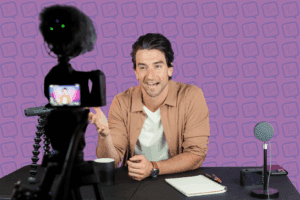Avoiding Pitfalls: Tips for Creators Considering Exclusive Deals with Brands

Influencer marketing is developing into one of the three most important marketing channels for Direct-to-Consumer (DTC) brands. For many years Google and Facebook were the only two marketing channels that mattered and influencer marketing was a nice to have. Today, influencer marketing is becoming an increasingly important part of every Direct-to-Consumer brands’ marketing strategy.
Brands’ biggest challenge is that there are only so many content creators out there who can speak intelligently about their product offerings. With a limited number of creators and a growing number of well-financed DTC brands, we are starting to see some brands utilize “exclusivity” clauses in their contracts that bar creators from working with competitive brands.
To help the creators in our network be as successful as possible, I wanted to share some of the most important considerations when entering into exclusive partnerships. To start, let’s review the pros and cons of these deals, then talk through how you should work through the negotiations process.
Pros:
- Your audience wants you to be authentic and promote brands you love. Jumping from brand to brand and promoting all of the companies in a single category comes off as inauthentic. Sticking to one brand will give your audience more confidence in your recommendations.
- Generally brands pay more for exclusive partnerships, so this could mean you are going to get a better paying or longer-term agreement, which might mean more consistent income.
- A brand sees a lot of value in your channel and wants to grow together. Brand that offer exclusives are often more willing to work with you on the content strategy and help you create better storylines and more entertaining content for your audience.
Cons:
- You cannot get paid to promote competitors. This could result in a loss in income.
- Your audience may not react well to the brand, and then you are left stuck without the potential to work with a competitor.
Important Negotiations:
When negotiating exclusive deals, always do the following:
- Make sure the brand specifically lists the names of the competitors you may not promote in the future. Do not agree to a contract that vaguely states you may not promote “competitive brands.” Instead make sure those brands are listed in the agreement.
- Make sure you are comfortable with the duration of the exclusivity clause. Generally exclusivity can last anywhere from 30 days to one year. This slides with the level of commitment the brand is willing to give you.
- If a brand wants to put you on a long-term exclusivity agreement, make sure they are committed to sponsoring many of your videos or being your performance-based partner for a long time. Don’t take a short-term deal with a long-term exclusivity contract.
- Research the competitors in the space. Make sure you feel confident that the brand offering you an exclusive deals is one you know, trust and respect.
Final Thoughts:
Influencer marketing is getting more competitive for DTC brands. This competition is forcing brands to negotiate exclusivity agreements with content creators. Become familiar with how exclusivity clauses work and work to negotiate a win-win deal that achieves both parties goals. If you ever have any questions about an exclusivity agreement, email our Brand Partnerships Team: brandpartnerships@influencelogic.com
Disclaimer: All information in this post is provided for educational purposes only and should not be considered legal advice for any specific person or specific situation.





